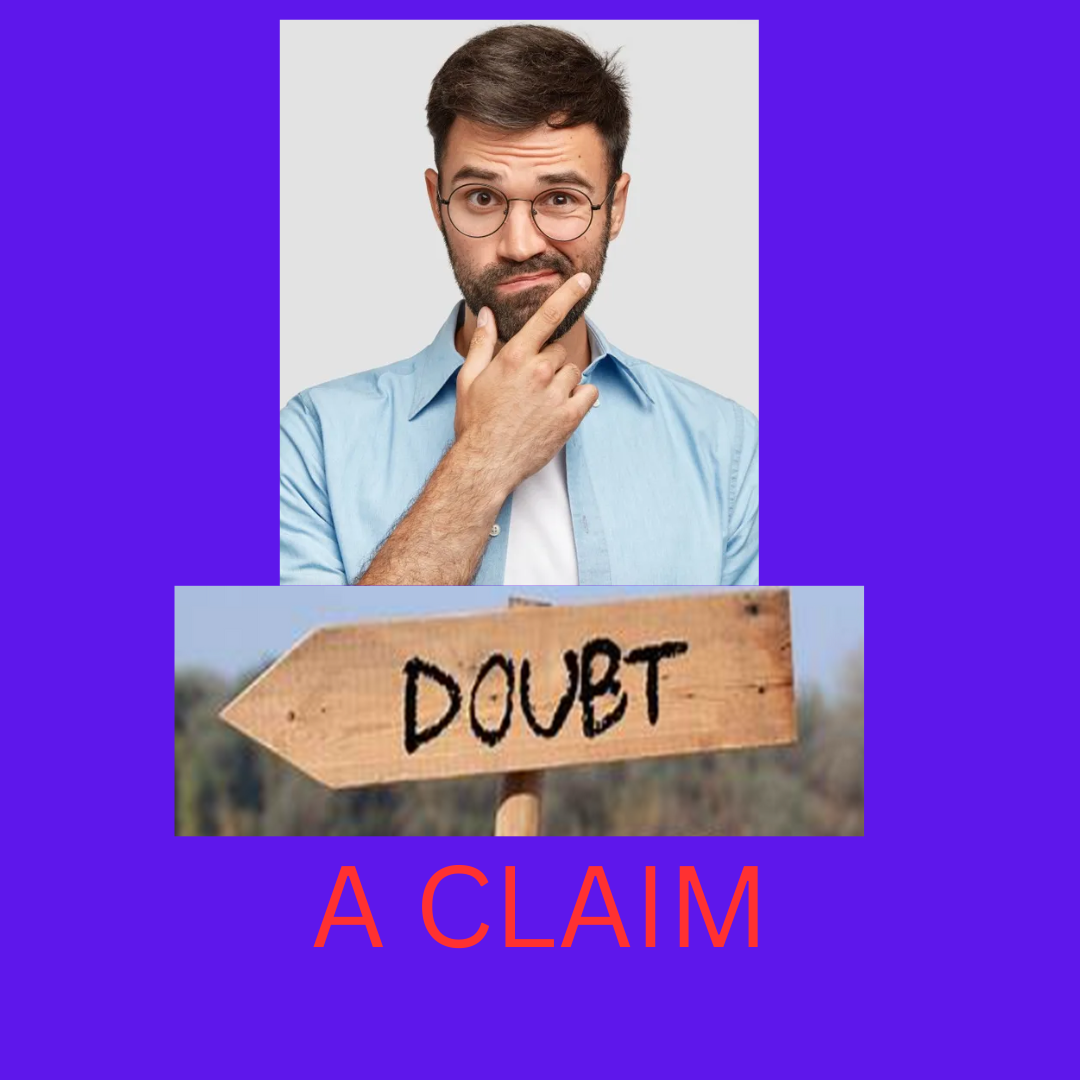Let us see what is a claim in TOK, It refers to a statement or assertion that is put forward as true or something that can be accepted as knowledge. In order to explore knowledge claim are important as they build arguments and discussions within our TOK concepts and AOKs. So, it is crucial to note that all claims are not necessarily justified or true. It is important that the validity and reliability of claims are evaluated.
There are different types of claims like historical, mathematical, ethical, empirical, cultural, scientific, perceptual, religious, artistical, philosophical etc. Examination of such complexity of claims along with knowledge exploration, assessment of evidence as well as various ways of knowing must be considered holistically in TOK.
Doubting a claim is an important aspect of rational thinking and scientific process. Why does one doubt a claim?
Confirmation bias– in this case a person only considers evidence that match with his pre existing belief and avoids any contradictory evidence. He. She may doubt the validity and objectivity of the presented claim. For example, in case of a news article he may doubt about the credibility of news in case it appears that the news is presenting facts very selectively in order to describe their narrative with no balanced view point.
Not sufficient evidence: Initially during the COVID time, there were a number of vaccinations that were released without any support to the claim that it is curable or preventable. There were a number of doubts with regards to the credibility of the clinical trials then. These tests need to be replicable in order to be considered reliable. There was misinformation in various sites , therefore the sources also need to be reliable. There were few who have not accepted the COVID vaccination as they believed that there was no scientific validity and those success stories that they heard were individual succees stories and it cannot be applicable to everyone in general, they doubted the effectiveness of these vaccines. There was a huge funding for these vaccines then, and so there could be a potential conflict of interest with regards to the objectivity of the research between the investors and the safety of using that vaccine
Another instance of doubting a claim is when you cannot test that claim. For instance if one says they have seen a UFO and you are unable to observe this in any way. So then it is challenging to assess such a claim. Most often, claims are accepted if they do not contract the current established scientific methodologies unless they are asserted with strong evidence or logic. .And if this reasoning seems faulty like circular reasoning or ad hominem behaviour like attacking personally instead of debating the argument stand, then this claim has a logical fallacy to be doubted.
Additionally, there could be some data that supports a particular claim selectively while ignoring the negative side of this claim completely thus leading to a question mark on the reliability of the data. There could also be some data that is not supported by the experts in the group and so the reliability of the data is questioned.
We may also doubt a claim due to cultural bias where each culture thinks they are superior to other cultures and their beliefs. Here there could be a possible bias for eg, the same novel could be interpreted by different readers of various countries differently and so apart from cultural bias here even the subjective nature of literary analysis of an individual needs to be taken into consideration when we have to doubt a claim.
There are also examples of revision of historical events data . So in that case lack of supporting documentation or the new historians perspective and interpretation may contradict the already existing historical records and thus questions the reliability of the claims. Finally the scientific methodology need to be transparent and consistent along with no data manipulation or inhumane treatment of subjects in order to be credible.
In conclusion, doubting a claim involves quality of the evidence produced, the rationale behind the claim and the credibility of the sources used. Doubting a claim in TOK can arise due to the above reasons like knowledge sources, justification methods and the reliability of information.
Visit www.3rdeyetutor.com/blog for more discussions
#3rdeyetutor
#tok
#prompt4

